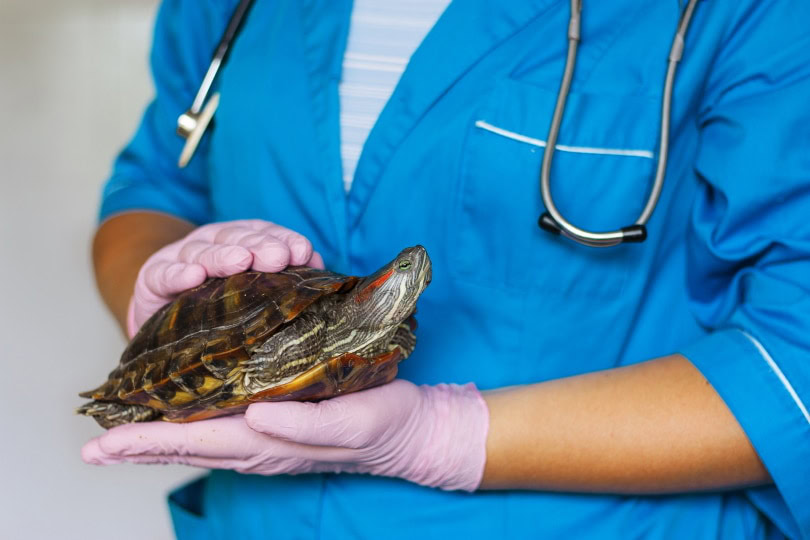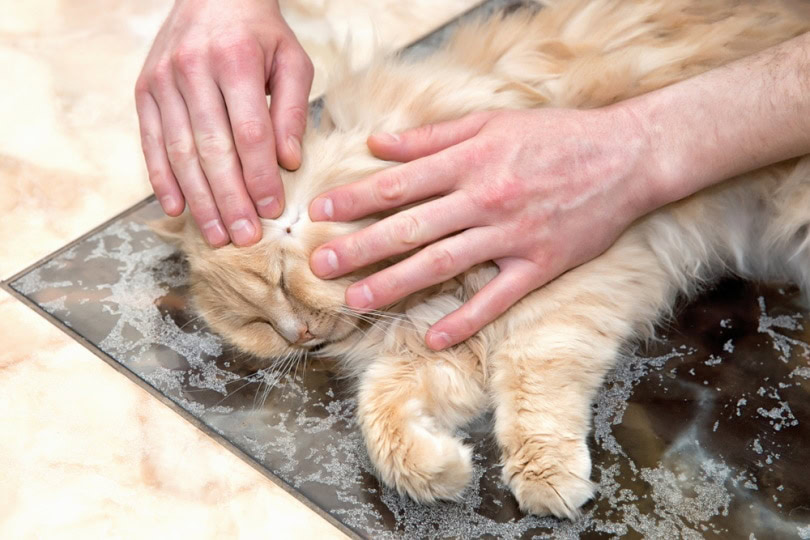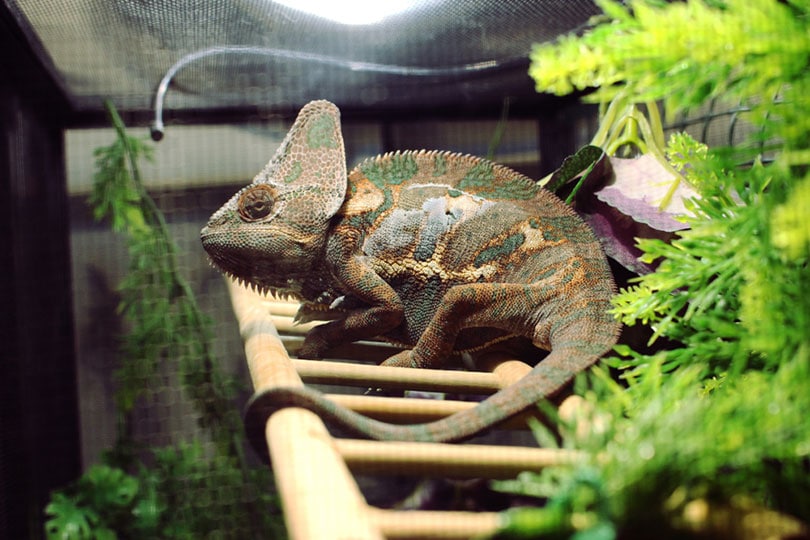VET APPROVED

The information is current and up-to-date in accordance with the latest veterinarian research.
Learn more »Click to Skip Ahead
Unfortunately for all pet lovers, the sad reality of owning a pet is that they will one day pass away. In the case of a pet turtle, however, it can sometimes be hard to tell whether your friend in a shell really has joined the great beyond or not. Part of this is because the majority of the turtle’s body is hidden inside their hard shell and out of sight. For some new turtle owners, it may be difficult to discern if your pet turtle is dead is a process called brumation.
Brumation is a cold-blooded animal’s version of hibernation for bears and other animals. During this process, the turtle’s body systems slow down and they can appear to be lifeless. So, how can you tell if your turtle is dead rather than just in a state of brumation? Here are six signs to look for when checking to see if your turtle is dead.

The 6 Signs to Look for to Know if Your Turtle Is Dead
1. Legs, Tail, and Head Not Retracted
The most important thing you should look at is whether or not your turtle is retracted into their shell. A turtle that’s dead will have their legs, tail, and head at least partially (and often completely) out of their shell and never fully retracted inside the shell. Their limbs and head are also very limp if they’re picked up; a dead turtle cannot hold their head upright. If your turtle is retracted within their shell, they are not dead.
2. No Response to Stimulation
A turtle that has passed away will not respond to any stimulation. For example, turning on their heat lamp, placing food or water near them, picking them up, or gently touching them will not evoke a response.
A turtle’s limbs don’t have to be pulled to stimulate them; their shells have nerve endings on them and a turtle can definitely tell when you’re touching them.
Please note that you should NEVER flip a turtle on their back to check for a response to stimulation; doing so is extremely stressful for a turtle that is alive as it puts extreme stress on their lungs (they struggle to breathe when flipped over).
3. Cold to the Touch
If your turtle feels abnormally cold when you touch them, they could be dead. However, this sign is a little bit trickier because a brumating turtle may also feel cold to the touch. You may need to look for additional signs to confirm your turtle is dead.
Keep in mind that turtles are cold-blooded and cannot regulate their own temperature. A turtle in a cold environment will definitely feel cold to the touch. Likewise, a turtle under a heat lamp will feel warm to the touch (but this doesn’t mean they have a fever).

4. Bad Odor
A dead turtle will begin to smell as they decompose. Decomposition starts shortly after a living being passes away, however, the rate of decomposition can vary depending on the ambient temperature. Decomposition is faster in warmer temperatures than colder temperatures.
The odors associated with a decomposing body are particularly foul and are a good indication that your turtle is dead. However do note that many health issues in turtles also emit a very foul odor (particularly some fungal infections).

5. Flies and Maggots
If you find maggots or flies infesting your turtle’s body, there’s a good chance that they are dead. A brumating turtle’s immune system slows down, which sometimes makes it easier for them to get injuries infested with maggots. However, a turtle covered in flies or maggots is more likely dead.
6. Lack of Arousal From Heat
In most pet turtles, brumation is controlled by placing them in temperature-controlled environments after a health check from a veterinarian to ensure that they are strong and healthy enough to undergo brumation. The process is terminated by rousing a turtle from their brumation slumber using a heating lamp. If your turtle doesn’t get roused from the heat for over 24 hours (under normal conditions, it would only take a few hours), they are probably severely ill or deceased.


What if Your Turtle Is Just Cold?
If your turtle just seems cold and unmoving but has no other signs of death, there are a couple of tricks you can try to see if they are still alive.
Warm the Turtle
If you think your turtle is just cold rather than dead, you can try warming them to see if you detect other signs of life. Warm your turtle for about 30–60 minutes. If your turtle is alive, you should see signs of life after that time.
Do note that you shouldn’t let every pet turtle brumate. Though the process is important for the regulation of hormones in healthy turtles, it’s best to get a clean bill of health for your pet from your veterinarian before getting them to brumate.
Take Them to the Vet

The best way to tell if your turtle is alive but possibly just cold or sick is to take them to a reptile veterinarian. The veterinarian will be able to examine your turtle, determine if they are alive, and treat them if they are sick.

Final Thoughts
Because we love our pets, we want them to live forever. Sadly, that will never be the case. However, when it comes to your pet turtle, there’s sometimes a chance that your seemingly lifeless pet is still with you. Look for these signs we’ve discussed to determine if your turtle is dead and hopefully you will find good news rather than the worst. As a general rule though, if they’re still retracted in their shell, they’re likely not dead!
Related Reads:
Featured Image Credit: Creeping Things, Shutterstock










